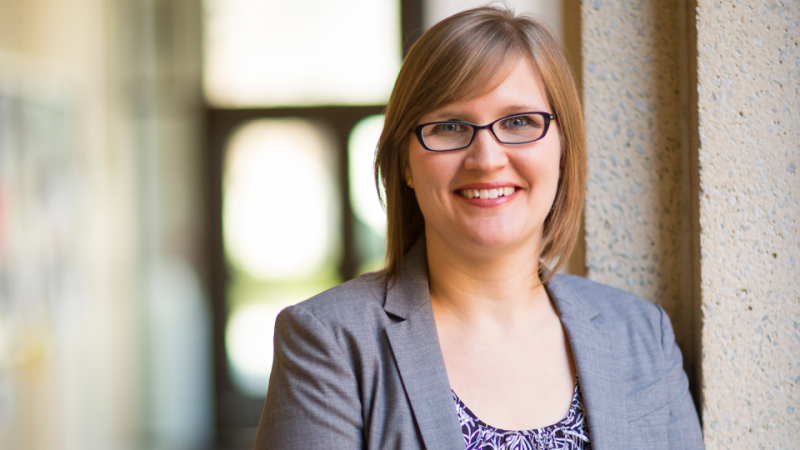Stereotypes make coming out trickier for bisexuals, according to study

When Oregon Gov. Kate Brown came out as bisexual to her parents, they reportedly told her they wished she'd come out as a lesbian instead because it would be easier to understand and accept.
Such reactions are common, according to a new study co-authored by UNL sociologist Emily Kazyak. The study found that cultural perceptions and stereotypes have more impact on bisexuals' coming-out experiences than those of gays and lesbians.
Stereotypes of bisexuality are pervasive and often negative or over-sexualized, and most research ignores bisexual identity or lumps it together with gay and lesbian sexual identity, Kazyak said. So she and co-authors Kristin Scherrer of Metropolitan State University in Denver and Rachel Schmitz of UNL looked at how people who identified as bisexual might have different experiences when coming out.
"We know that there are certain stereotypes about bisexual identity that are different from gay and lesbian sexuality," Kazyak said. "Our hunch was that bisexual people really have a distinct experience in coming out to family members, given those stereotypes attached to bisexual identity."
Researchers interviewed 45 people who identified as bisexual and found that perceptions of how family members viewed bisexuality caused the interviewees to react in one of three ways: to not come out at all; to come out as gay or lesbian; or to come out as bisexual. Perceptions of bisexuality also affected to whom the person decided to come out, and how those family members responded.
Bisexual identity may be more difficult to accept because of monosexism, the belief that people can only be gay or straight, Kazyak said.
"We really have this sense that sexual orientation is something that is black and white and that you're either attracted to people of the opposite sex or you're attracted to people of the same sex," Kazyak said.
Such beliefs often leave bisexual identity open to re-interpretation and misunderstanding.
"Family members will say, 'Oh, it's just a phase,' or, 'You're confused,'" Kayzak said. "That's why a lot of people came out as gay or lesbian. They would say things like, 'I think this will be easier for my family members to understand.' They thought coming out as bisexual would be too confusing to their family."
While Kazyak had hypothesized that the experience of coming out would be different for bisexuals, she was surprised at how much stereotypes and perceptions mattered.
"We were struck by how much people really thought about this," Kazyak said. "People put a lot of thought and energy into how they were going to come out. It's not necessarily easier or harder to come out as bisexual, but there's a different set of negotiations that bisexual people have to go through."
The study was published in March in the Journal of Marriage and Family.
More information: "Getting 'Bi' in the Family: Bisexual People's Disclosure Experiences." Mar 2015 in Journal of Marriage and Family. dx.doi.org/10.1111/jomf.12190















